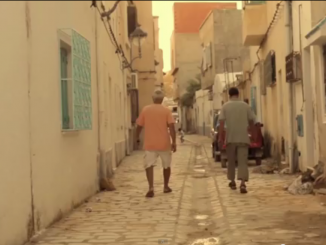
state violence

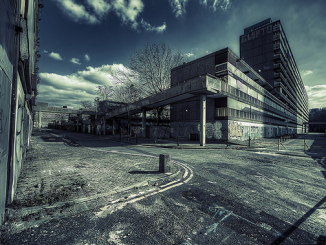
Heygate Was Home!

A dead city
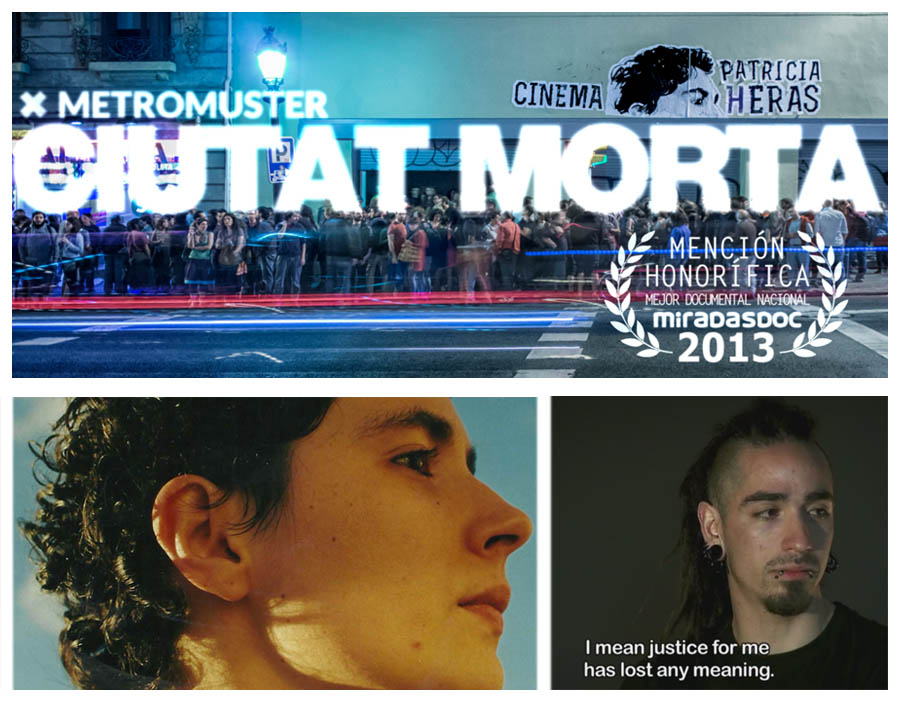 Like chinese boxes, this documentary not only brilliantly shows the institucional and political corruption behind the police-orchestrated hoax known as ‘4F’, which began on February 4th, 2006 in Barcelona’s calle Sant Pere Més Baix, but it also extends in a coil the understanding of horror to wider levels of society: from the police, to the judges, to the press, to social services, to the city council, to gentrification, in brief, to power in itself. Like before Joaquim Jordà’s De Nens (2003), now Ciutat Morta leads us from a particular history to the deep and terrifying comprehension of the general, of society, of the city. To the memory of Patricia Heras, the dead poet.
Like chinese boxes, this documentary not only brilliantly shows the institucional and political corruption behind the police-orchestrated hoax known as ‘4F’, which began on February 4th, 2006 in Barcelona’s calle Sant Pere Més Baix, but it also extends in a coil the understanding of horror to wider levels of society: from the police, to the judges, to the press, to social services, to the city council, to gentrification, in brief, to power in itself. Like before Joaquim Jordà’s De Nens (2003), now Ciutat Morta leads us from a particular history to the deep and terrifying comprehension of the general, of society, of the city. To the memory of Patricia Heras, the dead poet.
- “4F with names and surnames: a reflection on police, the judiciary, the press and the politicians, during the suffocating silence prior to the broadcasting of ‘Ciutat Morta’“, Jesus Rodríguez in La Directa, 21/1/2015
- “Something stinks in Barcelona“, Argelaga review, 27/1/2015
- Two petitions to sign: for the reopening of the case, and for the resignation of the Judge that seems to have written the verdict before holding the trial.
- Webpage of the movie. It is the same producer of No-res: vida y muerte de un espacio en tres actas, on the demolition of Barcelona’s Colònia Castells neighborhood.
- The mayor of Barcelona presents an award for the directors, but they do not take it: ¿how can they accept it from the same hands that have caused all this story?
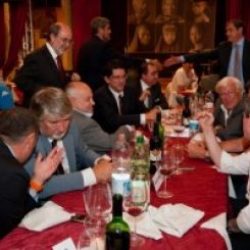
The fall of the Roman Empire
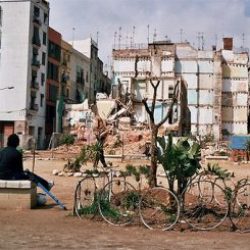
To resist is to win: 10 years in the Forat

There is life in the lagoon

The ghosts of San Berillo
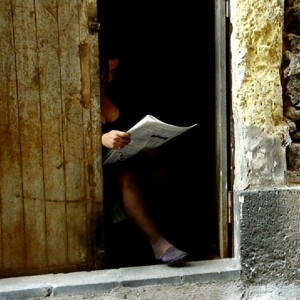 Different cities follow one another on the same site and under the same name, writes Italo Calvino, born and dying without knowing one another, without communication among themselves. At time even the names of the inhabitants remain the same, and their voices’ accent, and also the features of the faces; but the gods who live beneath names and above places have gone off without a word and outsiders have settled in their place. It is pointless to ask whether the new gods are better or worse than the old, since there is no connection between them… We recommend you another Italian documentary movie: Edoardo Morabito and Irma Vecchio’s I fantasmi di San Berillo (2013), first prize at Torino Film Festival. The demolition of this old neighbourhood in the centre of Catania (Sicily), in 1958, was the biggest urban evisceration in post-war Italy, linked (as everything in the country) with Vatican’s Società Generale Immobiliare: 30.000 people where displaced towards the peripheries. It was the same year in which brothels were banned: prostitutes were forced to work underground, and what was left of San Berillo turned into one of the biggest “red light districts” of the Mediterranean. So the story of the neighbourhood went on for another half century, until 2001, when a new police operation evicted again prostitutes and transvestites from their houses and streets. Today many plots are still unoccupied, and some became new favelas (see this 2012 video). The documentary shifts visually from past to present, and the images are associated with the fascinating words of writer Goliarda Sapienza, born in San Berillo in 1924.
Different cities follow one another on the same site and under the same name, writes Italo Calvino, born and dying without knowing one another, without communication among themselves. At time even the names of the inhabitants remain the same, and their voices’ accent, and also the features of the faces; but the gods who live beneath names and above places have gone off without a word and outsiders have settled in their place. It is pointless to ask whether the new gods are better or worse than the old, since there is no connection between them… We recommend you another Italian documentary movie: Edoardo Morabito and Irma Vecchio’s I fantasmi di San Berillo (2013), first prize at Torino Film Festival. The demolition of this old neighbourhood in the centre of Catania (Sicily), in 1958, was the biggest urban evisceration in post-war Italy, linked (as everything in the country) with Vatican’s Società Generale Immobiliare: 30.000 people where displaced towards the peripheries. It was the same year in which brothels were banned: prostitutes were forced to work underground, and what was left of San Berillo turned into one of the biggest “red light districts” of the Mediterranean. So the story of the neighbourhood went on for another half century, until 2001, when a new police operation evicted again prostitutes and transvestites from their houses and streets. Today many plots are still unoccupied, and some became new favelas (see this 2012 video). The documentary shifts visually from past to present, and the images are associated with the fascinating words of writer Goliarda Sapienza, born in San Berillo in 1924.
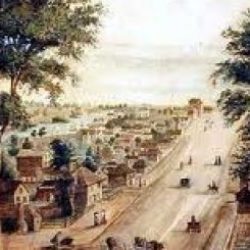
Unlearning the colonial roots of planning

The protector of Phnom Penh
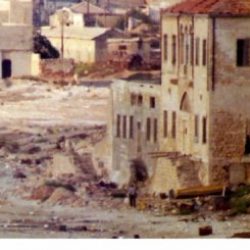
Wastelands: Weizman on military urbanism

On the occasion of the election of a new pope…
The speech of the great Manuela Trasobares [more about her] during the protest against the visit of Joseph Ratzinger to Barcelona, on november 7th, 2010, in a video made by our friend Jordi Secall: a political line about the church, the state, history… that reminds us of when, in Barcelona, we had a very clear opinion about these things. [original video in jordi secall’s blog :: reduced version in youtube, subtitled in SPANISH, ENGLISH & ITALIAN!]…

Towards a glossary of new urban rhetorics
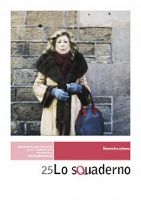 The last number of the review "Lo Squaderno" analyses some of the keywords in the new urban rhetorics: an articulation of the neoliberal newspeak from which Loïc Wacquant and Pierre Bourdieu warned us more than 10 years ago. Expressions like "vibrant city", "common goods", "mixité", "integration", "creativity", and obviously "citizen participation" are recurring terms in the lexicon of urban policies, serving as excuses for conducts contradictory with the original sense of the words that compose them (like we stressed in our work A Barcelona la participación canta). A series of academical and non-academical scholars discuss these rhetorical constructions bringing examples from Naples, Boston, Istanbul, Amsterdam, Vancouver, and, of course, Barcelona. The issue is illustrated with Rosario Kuri's reportage Barcelona bordes irregulares we linked in a previous post. Download Lo Squaderno n.25 here (italian - english).
The last number of the review "Lo Squaderno" analyses some of the keywords in the new urban rhetorics: an articulation of the neoliberal newspeak from which Loïc Wacquant and Pierre Bourdieu warned us more than 10 years ago. Expressions like "vibrant city", "common goods", "mixité", "integration", "creativity", and obviously "citizen participation" are recurring terms in the lexicon of urban policies, serving as excuses for conducts contradictory with the original sense of the words that compose them (like we stressed in our work A Barcelona la participación canta). A series of academical and non-academical scholars discuss these rhetorical constructions bringing examples from Naples, Boston, Istanbul, Amsterdam, Vancouver, and, of course, Barcelona. The issue is illustrated with Rosario Kuri's reportage Barcelona bordes irregulares we linked in a previous post. Download Lo Squaderno n.25 here (italian - english). 
“Re-cordar” Can Ricart: to pass it back through the heart
 el desahucio
"bueno,
en primer lugar, te sientes echado, no querido, violentado. se rompe de pronto el universo ese repetitivo e invariable y, sin avisar, todo zozobra,
nada parece real.
incluso los cambios en el barrio,
los derribos,
no tienen ninguna connotación positiva, sólo resultaban amenazadores,
tristes.
trasladar una empresa es complicado.
es decir,
debería serlo, pq una empresa, por encima de todo,
la forman personas.
eso quiere decir q se trastorna –de pronto- toda la cosmogonía de tooodos los integrantes...
el desahucio
"bueno,
en primer lugar, te sientes echado, no querido, violentado. se rompe de pronto el universo ese repetitivo e invariable y, sin avisar, todo zozobra,
nada parece real.
incluso los cambios en el barrio,
los derribos,
no tienen ninguna connotación positiva, sólo resultaban amenazadores,
tristes.
trasladar una empresa es complicado.
es decir,
debería serlo, pq una empresa, por encima de todo,
la forman personas.
eso quiere decir q se trastorna –de pronto- toda la cosmogonía de tooodos los integrantes... 
Words of Women from the Egyptian Revolution
 [/caption]
Chapter 1: Rasha Azab. 29 years old, journalist. She had been involved in social movements since 2000. In the west, she explains, they promote an image of egyptian activists as sweet and non violent: this is a strategy to calm down the protests. "No revolution happens for Twitter or Facebook. Revolutions occur when people take the streets, resist, die, sacrify important things".
[/caption]
Chapter 1: Rasha Azab. 29 years old, journalist. She had been involved in social movements since 2000. In the west, she explains, they promote an image of egyptian activists as sweet and non violent: this is a strategy to calm down the protests. "No revolution happens for Twitter or Facebook. Revolutions occur when people take the streets, resist, die, sacrify important things".

Baraka men sakate: no more silence
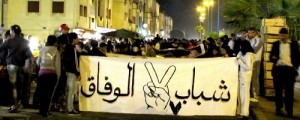 "These people suffering in silence and dragging on through the streets, are fed up of hanging around! / And what does HE do? he gathers his men to rearrange the constitution! There's enough for getting mad at it. / Do they want us to rise up and rip off our rights with weapons? It's me who has to decide who do I want to sacralize / And if you want to understand it, come and live with us: god, nation, LIBERTY!". Even just this last sentence could have meant detention for Mouade Boulghade (age 24), moroccan rapper from Al-Wifaq neighborhood in Casablanca, known as "Lhaqed" (L7a9ed), the Angry One, in prison since last september. He changed the last line of the national anthem, singing "liberty" instead of "the king": a symbolic attack more dangerous for the Makhzen (the absolute power that had been ruling Morocco during the last four centuries) than all the demonstrations and protests of the 20th february movement.
"These people suffering in silence and dragging on through the streets, are fed up of hanging around! / And what does HE do? he gathers his men to rearrange the constitution! There's enough for getting mad at it. / Do they want us to rise up and rip off our rights with weapons? It's me who has to decide who do I want to sacralize / And if you want to understand it, come and live with us: god, nation, LIBERTY!". Even just this last sentence could have meant detention for Mouade Boulghade (age 24), moroccan rapper from Al-Wifaq neighborhood in Casablanca, known as "Lhaqed" (L7a9ed), the Angry One, in prison since last september. He changed the last line of the national anthem, singing "liberty" instead of "the king": a symbolic attack more dangerous for the Makhzen (the absolute power that had been ruling Morocco during the last four centuries) than all the demonstrations and protests of the 20th february movement.